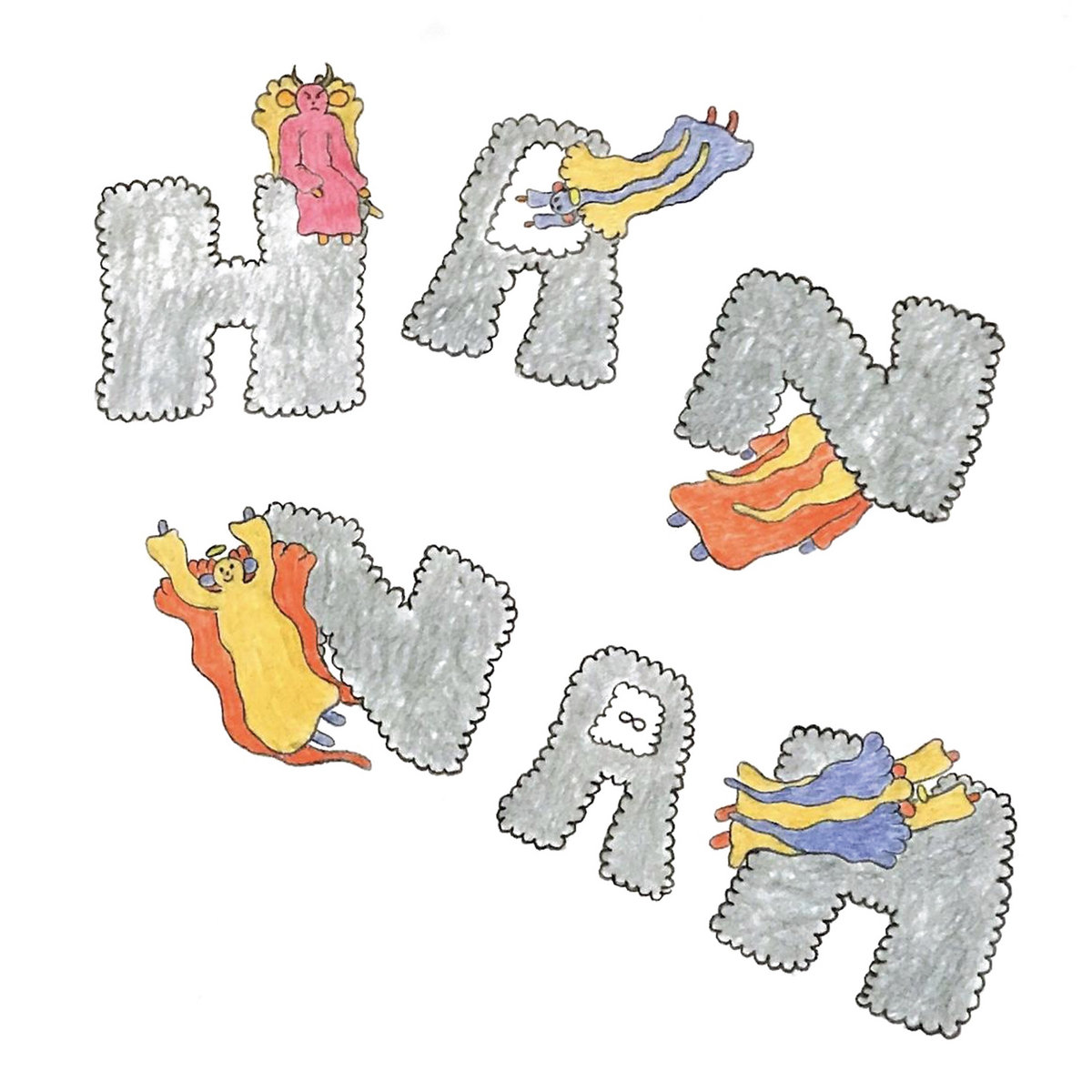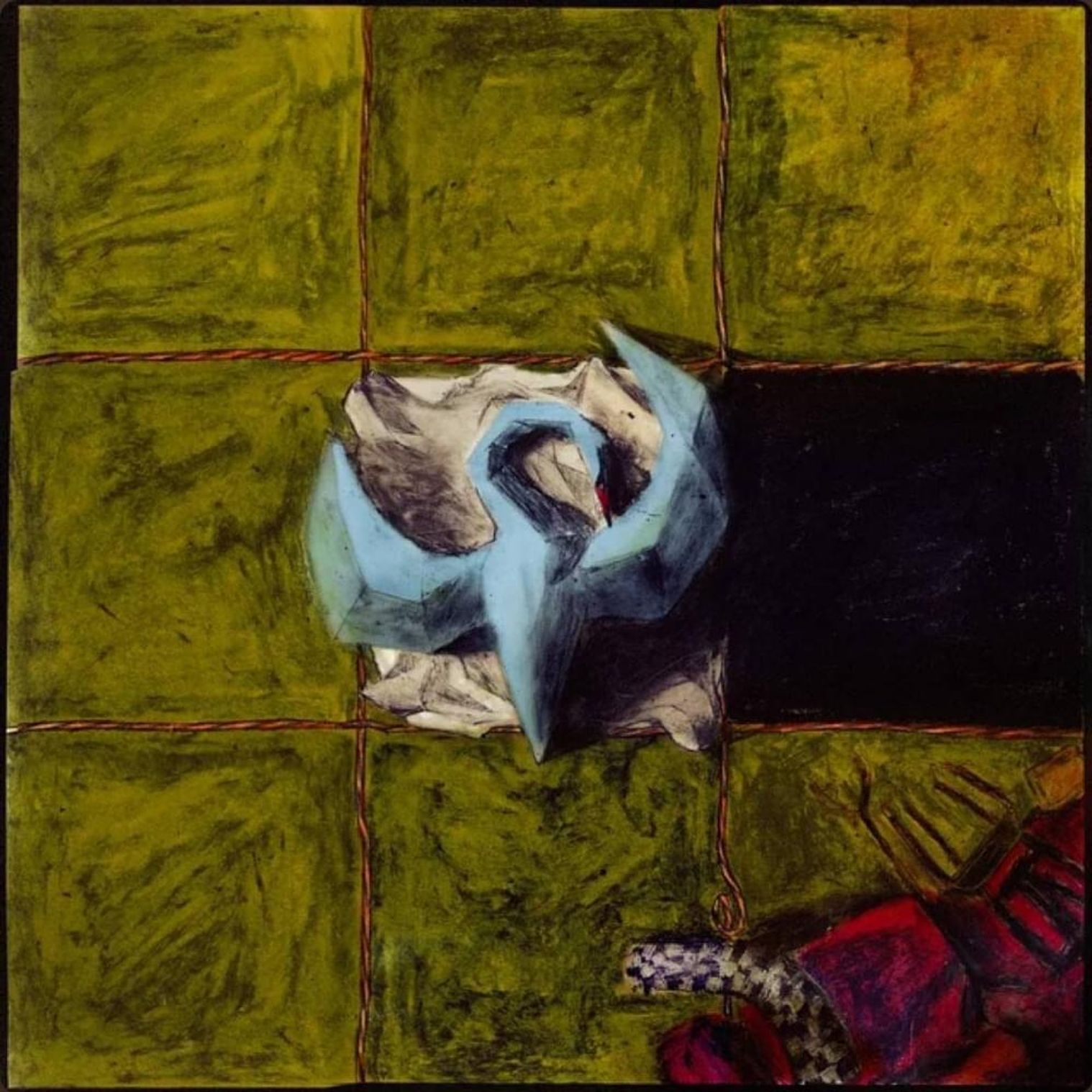Hannah Read takes a breath, counts in "one, two, one, two," and lets out a sigh. The first moments of Lomelda's latest album Hannah are not for us but for her. It's a subtle reset. There's relief and resignation in having another opportunity to excavate the deepest, stickiest parts of one's soul again, in a recorded musical form. Since she started putting out music in 2015, one of Read's goals with Lomelda has been to be honest, with both the audience and herself.
A few years ago, she said that she aimed to have her music sound "as close and as clear as possible so that there's no hiding anything." Listening to Lomelda often feels like you're in the room with her, intimate and aware that you're being watched, are watching. Read is conscious of the listener -- she knows these aren't diary entries, they are songs, and she knows that if she is successful in her pursuit, people will sing these back to her someday, echoing her own memories and imperfections. On her new album, there are two songs "for strangers," but really all of these songs are for strangers, as much as they are for herself. Once they're out in the world, they change. "I don't own it/ The songs are free," she sings on one called "Stranger Sat By Me." "Set free, my mind is busy/ Busy with heavenly bodies."
Read takes her craft seriously, approaches it with reverence for the power it can instill in someone else and in herself. The idea of ownership -- of her music, of herself -- threads itself throughout Hannah. She named the album after herself, not Lomelda, the goofy word she made up years ago to encapsulate her own music. It's the name her parents gave her, the name that will accompany her no matter what shape she takes.
There are three different songs here named after herself, all appended with descriptors: "Hannah Sun," "Hannah Happiest," "Hannah Please," like an astral chart of self-discovery. All these songs are tied to moments in time when her own definition became fuzzy, when who we think we are is brought into question. "Hannah, do no harm," she pleads to herself on one. "Asked if you knew who I was/ You said Hannah." "Come on, Hannah, please/ Swear I try/ I'll be sky/ Somehow." The pull to be everything to everyone all at once only gets stronger as one gets older. It becomes increasingly more difficult to be true to oneself.
"It felt important to call it Hannah because it attached me and my person and my responsibility to the music -- because that’s my name -- in a different way than just calling it 'Lomelda' would do," Read said in a recent interview. "Everybody, as they grow up, has to examine what they've been given and then compare that to what they want to be or what they're choosing. For me, I was reconciling what I was choosing and what I was given, and deciding to call myself Hannah."
Lomelda has had three full-lengths, and one live album, and they've all sounded a little different. Her 2015 debut Forever is roiling and loud, with booming drums and images of a dreary apocalypse; Thx is starry-eyed and still, with compositions as intricately arranged and expansive as the open road; and last year's M For Empathy is stripped back, unfussy, reflecting how it was released with little fanfare or advance warning. Hannah has little bits of all those albums. It's a showcase for Read's abilities as a singer and songwriter and musician, the culmination of a journey that also feels like a reintroduction.
The songs on Hannah sound unhurried, like they have nothing to prove; even when they're busy and brash, they feel elementally simple. And there's perfection in that simplicity. Read recorded the album three separate times before she was satisfied. It's hard to conjure up this level of intimacy, and few albums in recent memory pull off that trick as well as this one. The only one I can think of is her Double Double Whammy labelmate Florist, whose Emily Alone from last year sounds equally calm and uneasy.
Each time Read re-recorded Hannah, she traveled from her current base in Los Angeles to her small southeast Texas hometown of Silsbee, where her brother Tommy runs a studio. Maybe because it was created so close to home, Hannah feels warm and immensely comforting. It radiates light even in its darkest moments. At the center of all of these songs is Read’s remarkable voice, which sounds swallowed up and wide open all at once.
Read's past work imagined visions on highways and wondered what was "out there," and she's still focused on geography here. On "Hannah Sun," she runs through places like a View-Master, shifting from location to location and hoping to hit on one that sticks. "I sent you the sun/ From my hometown/ And Chicago/ And Atlanta," she sings, rattling off place names to signify how far she's traveled. "Sinking at the sight/ Of your shadow/ On the sidewalk/ In Spain/ Or back in upstate/ Was it Jersey?/ At the airport?/ To Alaska?"
There's displacement on this album, a feeling that Read is constantly moving but going nowhere. "Another night against a new window view," she sings on the album's closing track. "Big old crescent moon/ Shining sad in shadowing blue." Being a working musician on the road requires so much of yourself, denies you the roots that one so desperately needs. That's perhaps part of the reason why Read keeps returning to her name: It's something that she can bring with her no matter where she goes.
But what is a name if it stands for nothing? Another throughline on Hannah is a determination to do something with that name. On "Wonder," one of the album's most forceful tracks, she builds a looping repetition, frothy and heaving. "When you get it give it all you got you said," she sings over a groove firmly locked into place. A name is immovable but it's also full of potential. She returns to the idea of giving it all again closer to the end of the album on "Tommy Dread," where that desire dissipates into not knowing. "What was it good for?/ Nothing at all/ All you got." She repeats that last phrase on it, makes it into something sturdy and reliable, wanting to make a lasting impression.
And it's easy to know what Read is aiming for, who she wants to emulate with her own music. She names them herself, on a stunning track called "It's Lomelda" where she croons her favorite artists. "It's Low, Yo La Tengo/ It’s the Innocence Mission/ Frank Ocean, Frankie Cosmos," stretching the name of Greta Kline’s beloved indie-pop project into a blearing hook. She wants Lomelda to be that band for other people, something comforting and warm and perpetually honest. There's value in her name, and how she uses it and what she does with it matter.
Hannah is out 9/4 via Double Double Whammy. Pre-order it here.
Other albums of note out this week:
• Bill Callahan's Gold Record, which we'll have more to say about later this week.
• Throwing Muses' buzzing and intense Sun Racket.
• Corey Flood's uneasy and sharp Hanging Garden.
• Barely Civil's expansive and emotional I'll Figure This Out.
• Tricky's dark and itchy Fall To Pieces.
• Ryan Pollie's pop-punk side project Total Revenge's self-titled debut.
• Vritra's dreamy and rich Sonar.
• Hannah Georgas evocative and meditative All That Emotion.
• Patti Smith and Soundwalk Collective's Peradam.
• Billy Ocean's first album in a decade, One World.
• Thor Harris & Friends' guest-heavy 3 and 4.
• Big Sean's Detroit 2.
• Iann Isiah's AUNTIE.
• Neu! and Harmonia's Michael Rother's Dreaming.
• The Allman Betts Band's Bless Your Heart.
• Grant-Lee Phillips' Lightning, Show Us Your Stuff.
• The Marc Bolan/T. Rex covers compilation Angelheaded Hipster, featuring contributions from Nick Cave, Joan Jett, Kesha, and more.
• The Rolling Stones' Goats Head Soup reissue.
• Yo La Tengo's Electr-o-pura reissue.
• Laura Stevenson's Sit Resist reissue.
• Dirty Projectors' Super João EP.
• William Tyler's newly announced New Vanitas EP.
• Girlpool's Touch Me (It's Like I'm Winning It) remix EP featuring Dev Hynes, Porches, and Lydia Ainsworth.
• Sprain's As Lost Through Collision EP.






